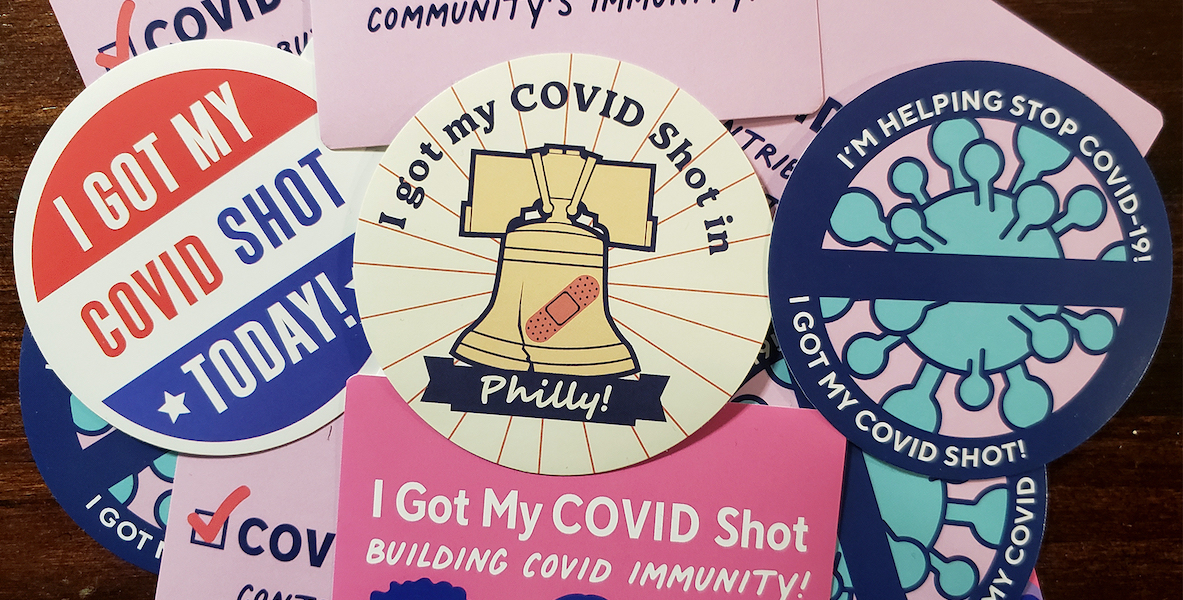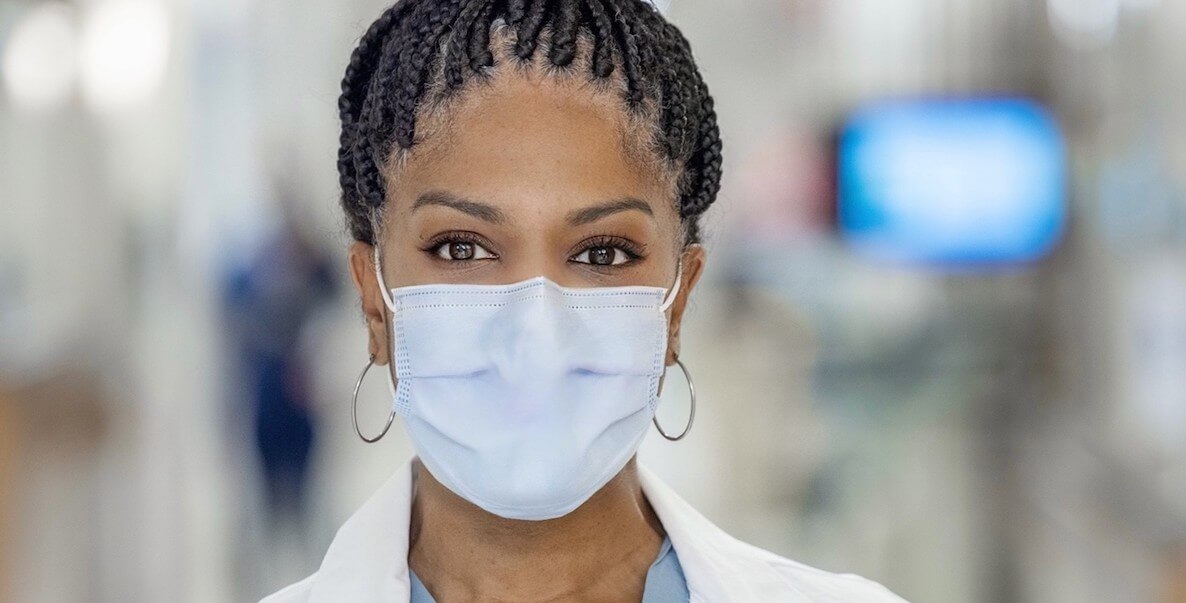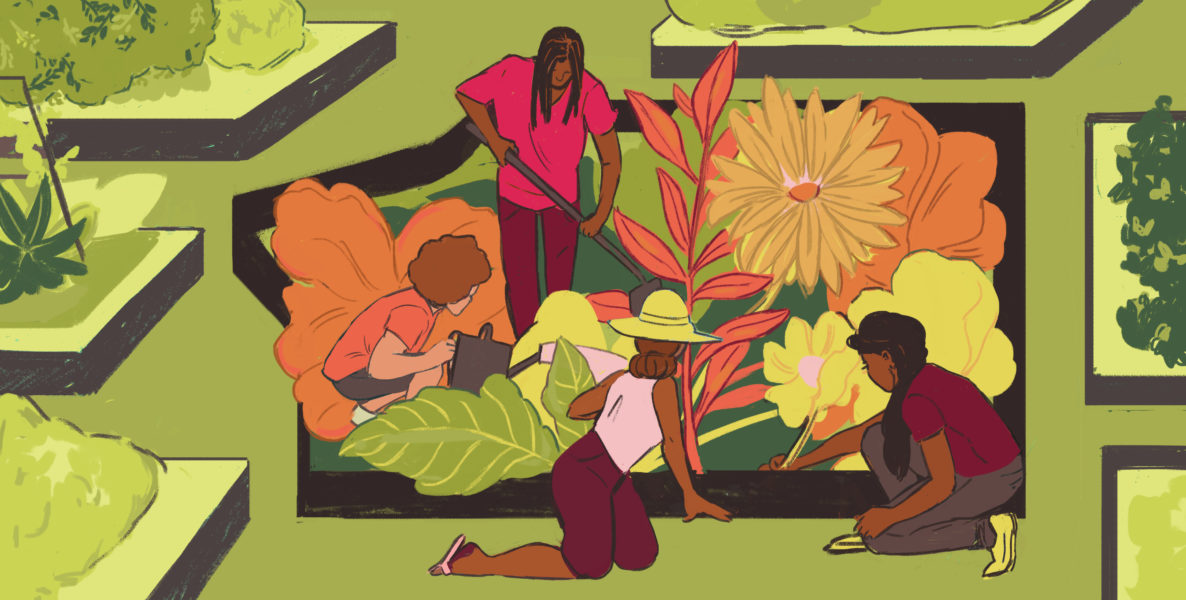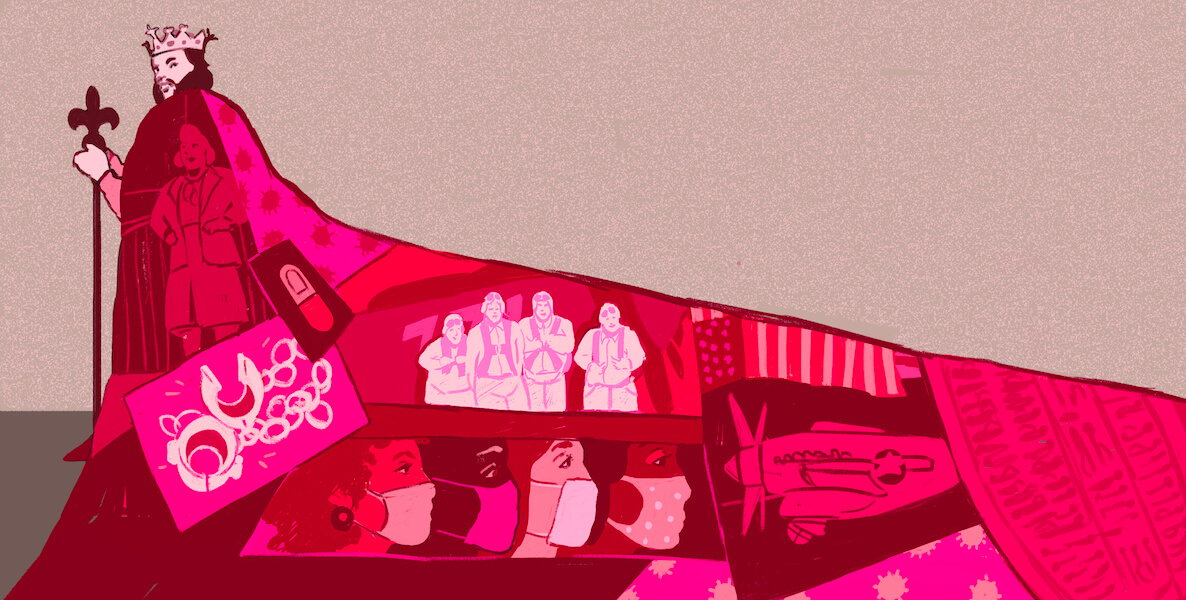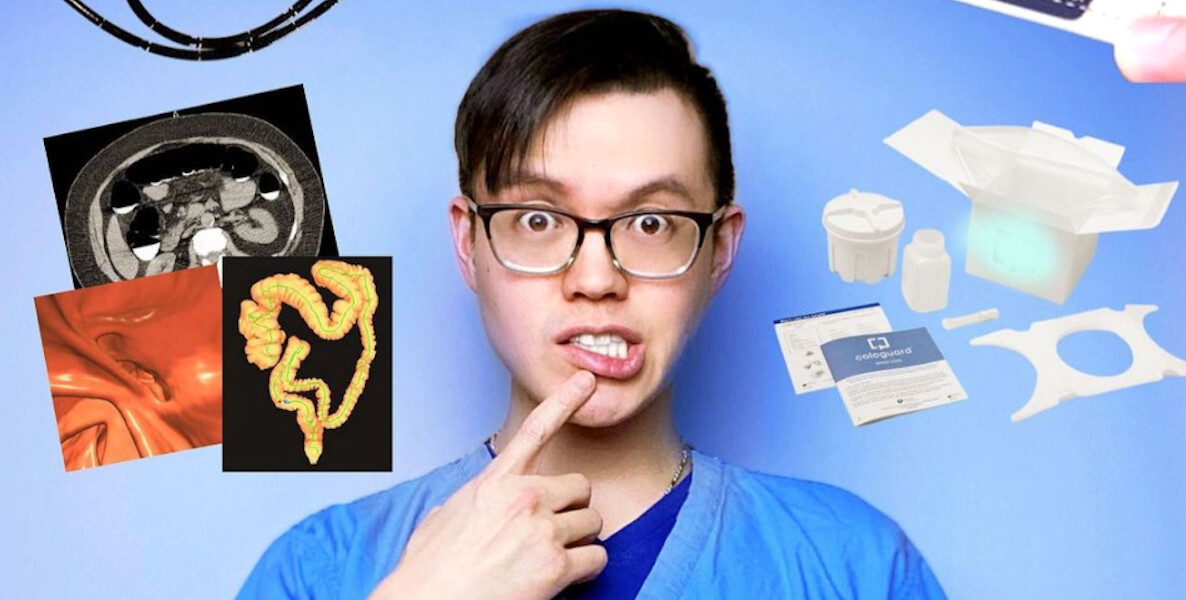If you’ve never giggled over the thought of a colonoscopy or found anything remotely amusing about trying to understand coronavirus infection rates, it’s likely because you’ve never watched gastroenterologist Austin Chiang address these issues on TikTok. (You can—and should!—watch him do that here and here.)
Over the course of a couple years, this 35-year-old triple threat—Thomas Jefferson University Hospitals’ director of the Endoscopic Bariatric Program, assistant professor of medicine, and chief medical social media officer—has taken on a number of serious health issues on his TikTok channel, educating viewers via a medium most often associated with viral choreographed dances. In short micro-videos, he imparts an impressive amount of information to his public, garnering millions of views as he busts mistruths, shares medical facts and absolutely slays. And yes, sometimes there are choreographed dances. (So … quadruple threat?)
Chiang, who’s approaching a half-million followers on TikTok (and almost 67,000 more on Instagram, plus another 13,300 on Twitter), didn’t set out to be a social media star. He aspired only to share sound, cite medical information with a public who seemed to increasingly be getting medical advice from questionable sources. “I noticed my patients weren’t getting information from clinical encounters, but through everything they were exposed to outside of the hospital,” Chiang says. Namely? Social media.
MORE ON HEALTH MESSAGING IN PHILLY
- Locals get creative to convince Philadelphians to get vaxxed
- Understanding the fear of the medical establishment in Black communities
- One Black doctor at Penn on caring for our entire city
- Philly should consider incentivizing vaccines to get more shots in arms
So, some years back, Chiang set about trying to create a professional social media account for a division in which he was working, but ran into enough red tape that he transitioned his own personal Twitter presence into a professional one, while diving into academic research about social media.
From there, it snowballed, both in a professional sense (today, he’s one of a very few health-system social media officers in the country) and online: Twitter led to Instagram, which led to to TikTok, which has led to, yes, a particular sort of fame built around sharing medical info and combating all the garbage out there in short, engaging and memorable videos.
In Philly, Chiang occasionally gets recognized and stopped on the street (“I love that,” he says), but he’s also been featured on MSNBC and BBC News, as well as in Men’s Health, the Inky, and the New York Times. “Seriously,” the NYT reporter marveled, “he makes learning about acid reflux fun.”
“I noticed my patients weren’t getting information from clinical encounters, but through everything they were exposed to outside of the hospital,” Chiang says. Namely? Social media.
Humanizing medicine
Not surprisingly, Chiang and his online persona attracted a decent amount of attention during Covid, when he frequently used his platform to address new findings and questions on pandemic-related topics at a time when the world was hungry for trustworthy info.
“I honestly felt it was helpful to be there,” he says, “and felt some pressure in being a voice online for that, even knowing there might be backlash and anti-vaccine sentiment. But I always felt it was more important to get word out and cite my sources, knowing that I have the evidence to back it up.” (This was not a wholly uncommon sentiment during Covid, even in Philly: At Penn, for instance, a group of scientists who dubbed themselves “the Nerdy Girls” took to Twitter with “Dear Pandemic” to combat misinformation and share scientific truths.)
For Chiang’s part, once some of the basics were “hashed out,” when people started delving into the granular questions, “I took a little step back because I felt those were questions for immunologists and I wasn’t the person to ask,” he says. Sure, anytime there’s big Covid news, like a shift in mask protocol or some such, he’ll comment on it. “But pandemic aside, I don’t usually want to step out of my lane”—all things GI health—“because I want to put out accurate information.”
@austinchiangmd Enormous pet peeve ⚠️ #guthealth #guttok
And that—spreading accurate information—is the whole point of all of this. The accolades are nice, but it’s really about public health, about connecting with and meeting people where they are, Chiang says.
“It’s become quite apparent that health care professionals need to be on social media platforms,” he says. In part, this helps “to get information out and reduce the distance between us and the patient.” It also helps to humanize them, which is especially important now, Chiang believes, “because trust in health care is at an all-time low. I think if we can put a bit of personality into it, it might help people recognize that we have the same struggles and interests that everyone else does.”
Ideally, he says, seeing health care professionals on media like TikTok dispels the image of doctors as intimidating, robotic and distant authority figures. “That’s a product of what health care delivery looks like these days. We’re held to such tight constraints.” Social media feels like a natural antidote to at least some of that.
“It’s become quite apparent that health care professionals need to be on social media platforms,” Chiang says
Meantime, communication has long been a part of what Chiang sees as his role in medicine, even beyond the one-on-one relationships he has with patients. Not long after getting his MD from Columbia, he got his MPH—that’s a Master of Public Health degree—from Harvard. That was in 2017; in 2018, after a fellowship in advanced endoscopy at Jefferson, he decided to stay on at Jeff as the director of the endoscopic bariatric program and chief medical social media officer.
In the latter role, says John Brand, Chief Communications Officer for Jefferson Health, Chiang is “integral in helping to advance social media across our enterprise, from onboarding physicians on social platforms to educating them on the dos and don’ts of social media.” Throughout the pandemic, Brand adds, Jefferson Health’s Health Nexus also worked “to provide our audiences with accurate, truthful and timely health information”—and Chiang “shares our passion for rooting out the inaccuracies that proliferate social media today, which allows our audiences to build a deeper, more meaningful relationship with Jefferson at all times of the day, not just when they’re sick and looking for care.”
On a wider stage, too, Chiang is something of a medical social media evangelical: In 2019, he co-founded the Association for Healthcare Social Media (AHSM), a professional society that unofficially got its start in 2018, when a small group of health professionals, including Chiang, launched a hashtag campaign, #verifyhealthcare, encouraging health experts on social media to disclose their backgrounds and credentials. (Online, Chiang explains, “you have people masquerading as healthcare professionals all the time.”)
That campaign sparked conversations about helping medical professionals get online, increase their social media presence and avoid the potential pitfalls of going public—all the while improving “the integrity and public transparency of online medical information.” This is what AHSM does today, providing education and resources about evidence-based best practices, and advocating for social media platforms as public health tools. Currently, the society is more than 700 members strong.
So can we expect Social Media 101 as part of medical-school curriculum now? “I think some institutions are moving toward that,” Chiang says—Jefferson potentially included.
At a moment when social media platforms are also grappling with misinformation on their sites (some grappling more than others), AHSM has actually developed relationships with some of them.
“YouTube has been great,” Chiang says, “and even put on courses like YouTube 101, showing people how to optimize home set-ups for filming, and how to look at analytics and see where you can do better.” LinkedIn and Pinterest, too, have gotten involved: “They realize they want accurate voices on their platforms,” he says.
“I never danced in public before TikTok”
When it comes to the flip side—encouraging fellow practitioners to embrace social media as a professional tool—Chiang’s the first person to admit that standing in front of a camera talking (or lip-synching, or dancing) isn’t for everyone. He understands first-hand the hurdles for people who have studied medicine rather than, say, communications. (Or theater.) “There have definitely been moments where I’ve had to step outside my comfort zone and take a chance,” he says. “I never danced in public before TikTok.”
Some amount of confidence comes with positive reinforcement and with practice, he says, but still, “I’m not here to force anyone to put themselves out in public,” he says. “We all have a different threshold for that.” What he does do is encourage people he thinks will have a knack for it, and speaks to practitioners and students about using the platforms safely and effectively (and with limited time).
@austinchiangmd 2021 is when we end this. 🙏 #vaccine
Beyond his impressive number of followers and award nominations like this one, there aren’t obvious metrics to track Chiang’s influence (or that of his AHSM peers) on his medical peers, but there has been a noticeable uptick of docs on TikTok over the past year or two. He thinks he’s converted far more consumers than creators, he says, but in any case, he’s happy to see more professionals getting on the app and out of their shell. “I’m glad to see people have been receptive to it.”
So can we expect Social Media 101 as part of medical-school curriculum now? “I think some institutions are moving toward that,” he says—Jefferson potentially included. For now, though, that looks less like a formalized curriculum and more like Chiang’s presentations to medical students.
Truth is, he says, “there are so many things that aren’t medicine that I think are still important for health practitioners to understand.” Everyone has a different goal and purpose when it comes to their field, he adds. “There’s an unlimited amount of information to pack in. You have to pick and choose.”
“What the pandemic has highlighted is that we all have some degree of responsibility here. We can complain about what’s happened, about all the misinformation, but part of it is that we’re not always so good at reaching people and actually communicating information in digestible ways.”
For all sorts of digestible medical tidbits—plus loads of hip-hop, lip-syncs and an occasional dose of women- , AAPI- and LGBTQ+ empowerment—you can follow Chiang on TikTok, YouTube, Insta and Facebook.



